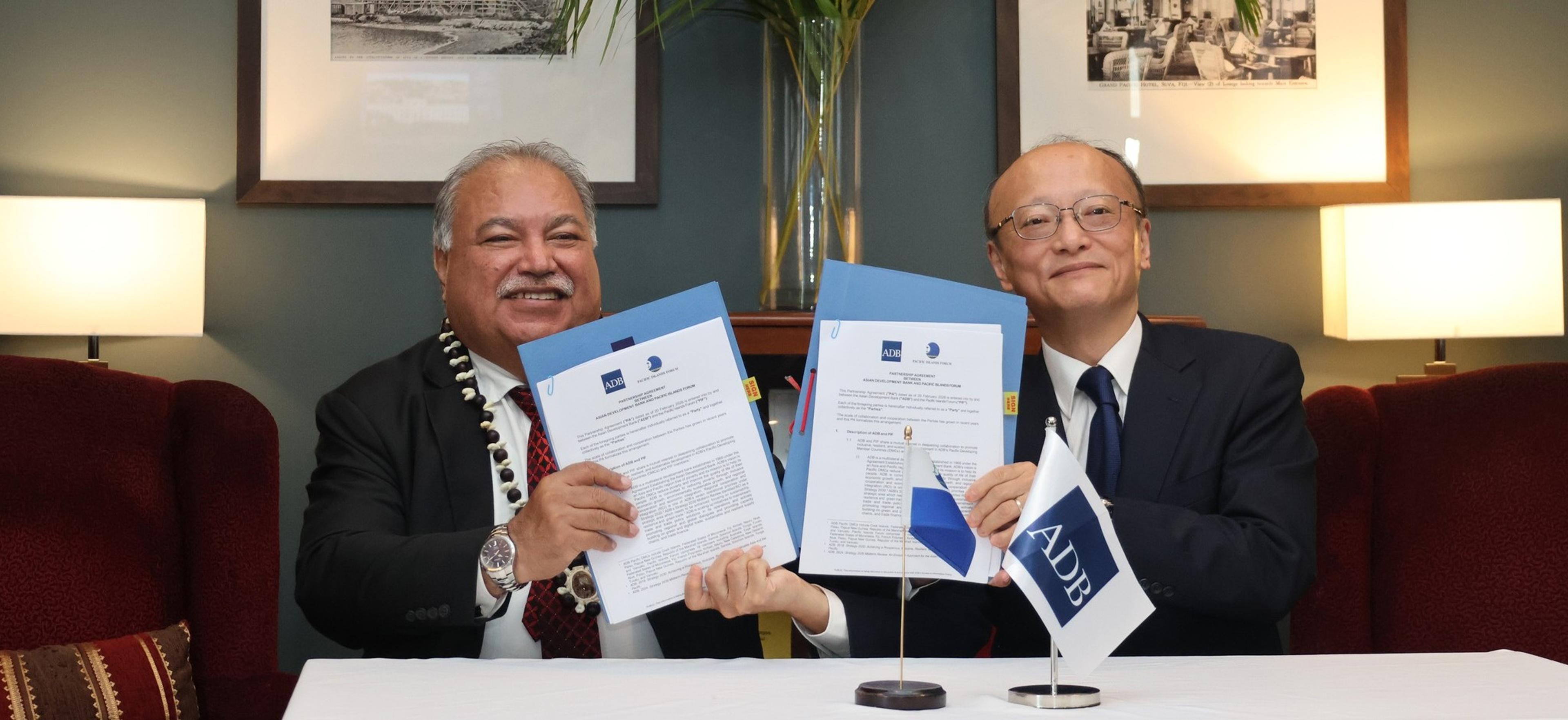
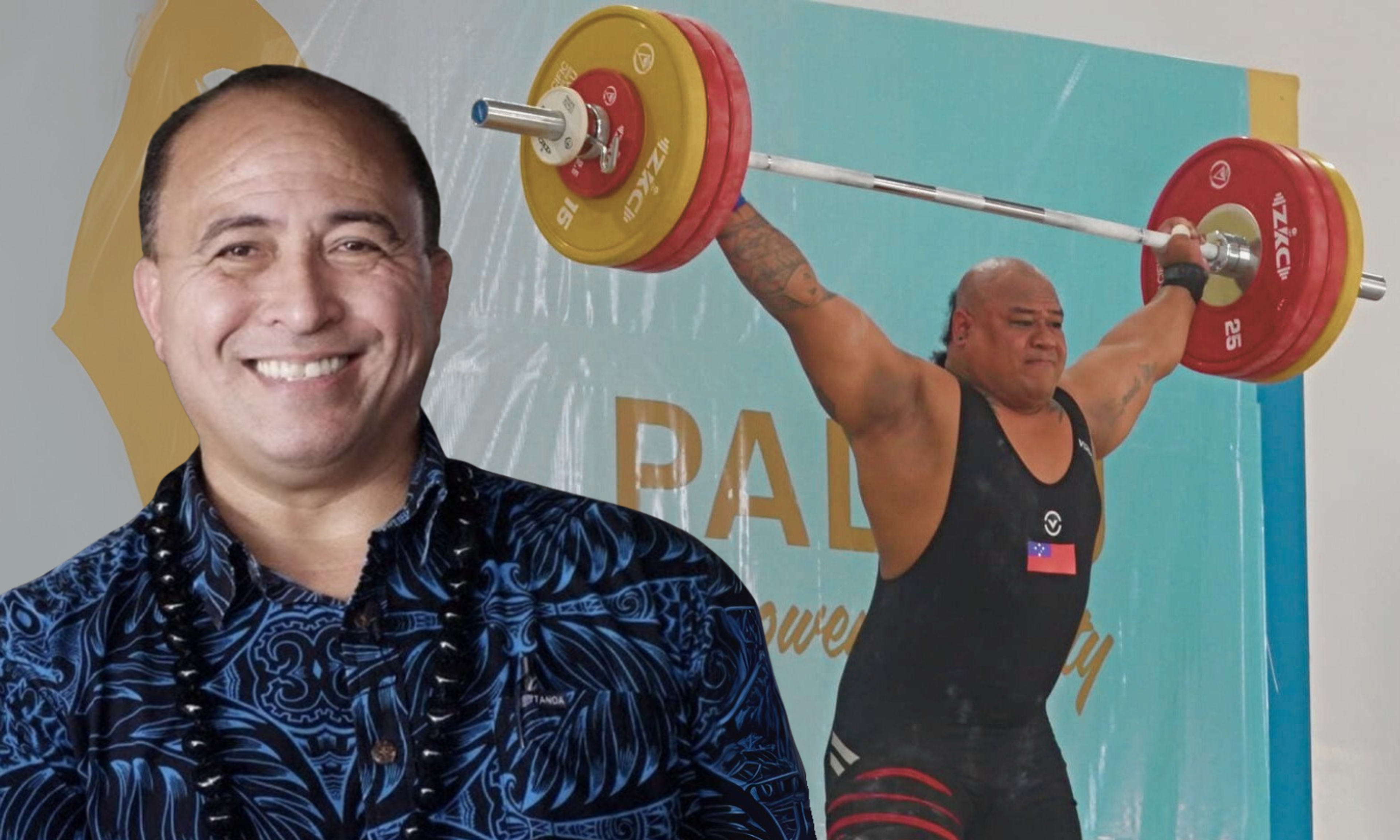
Sāmoa Weightlifting coach Jerry Wallwork and Pacific Mini Games medallist Sanele Mao.
Photo/IWF/PMG 2025
Sāmoa's weightlifting coach condemns doping as Pacific athletes call for fair play
Speaking from the Pacific Mini Games in Palau, Tuaopepe Jerry Wallwork criticises the pervasive doping issue, highlighting the challenges faced by Pasifika to compete on an even-playing field.

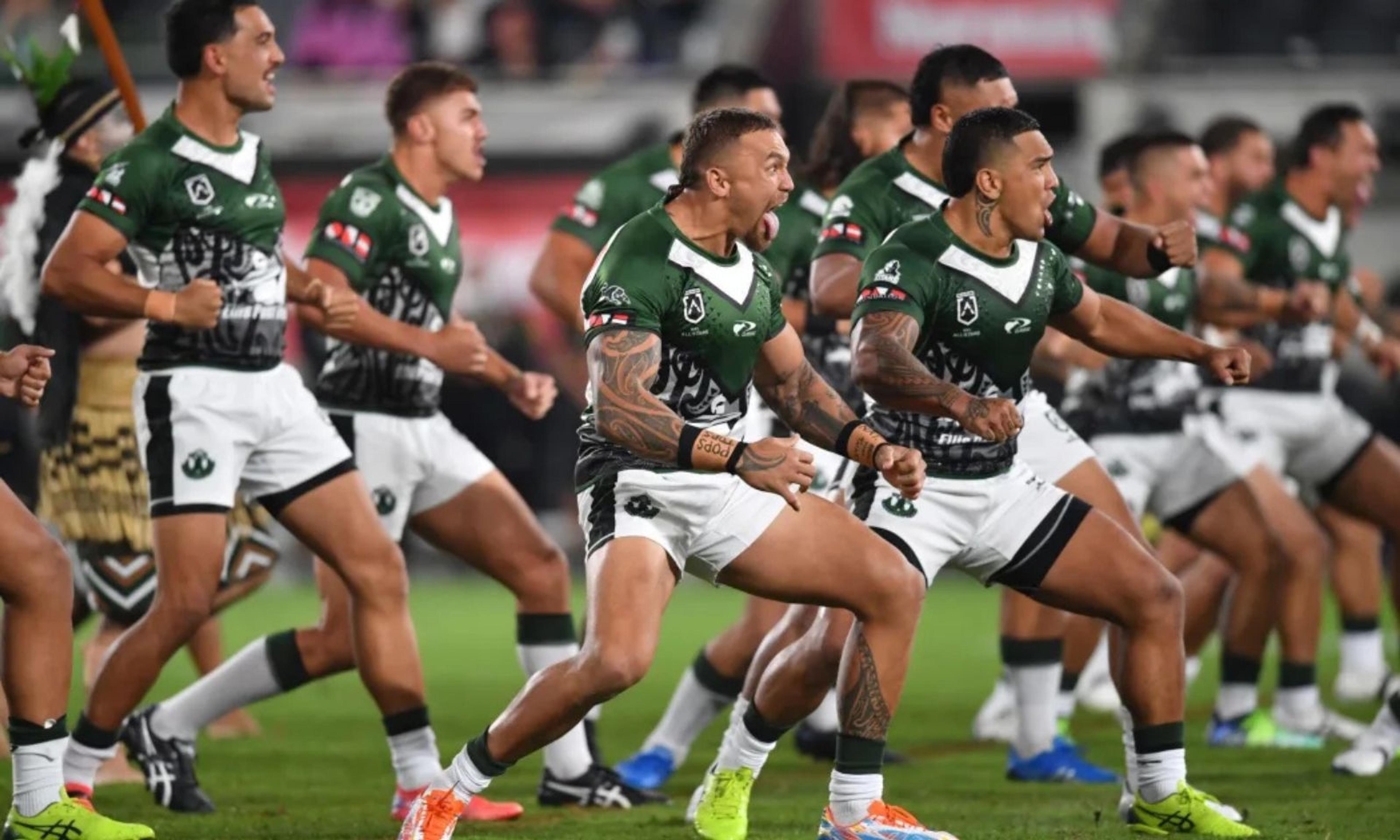
Time for an Indigenous State of Origin? The All Stars game shows who really powers the NRL



Asian Development Bank expands Pacific footprint with Suva hub and new PIF agreement

Time for an Indigenous State of Origin? The All Stars game shows who really powers the NRL


Sāmoa's national weightlifting coach, Tuaopepe Jerry Wallwork, has openly criticised ongoing doping practices in global sports, saying Pacific athletes are competing on an uneven playing field.
His comments come amid the Pacific Mini Games, which are underway in Palau. The Games started last week and end on Wednesday.
In an interview with PMN correspondent James Nokise, Wallwork condemned global doping in sports, claiming it has been unfair for Pasifika athletes to be pitted against nations that still use performance-enhancing drugs.
“We’re from a very small island like Sāmoa, going against the best in the world… and we’re competing against superpower countries that are still using drugs.
“I say that openly because their positives [tests] are non-stop, on a weekly basis. It’s fighting an unfair playing ground at the moment.”
During the Pacific Mini Games, Sāmoa showcased a dominant performance in weightlifting, winning 15 gold medals and breaking two Commonwealth records and 18 Oceania records.
Listen to Tuaopepe Jerry Wallwork's full interview below.
But their star lifter, Sanele Mau, had to withdraw from the final after aggravating a hip injury. Wallwork says the team’s long-term focus now shifts to the Commonwealth Championships and the 2026 Commonwealth Games.
“Weightlifting Sāmoa’s target is to win a medal, regardless of what colour,” he says. “That is the dream now.”
While global doping scandals continue to dominate headlines, the Pacific approach at this year’s Mini Games centres on education and prevention.
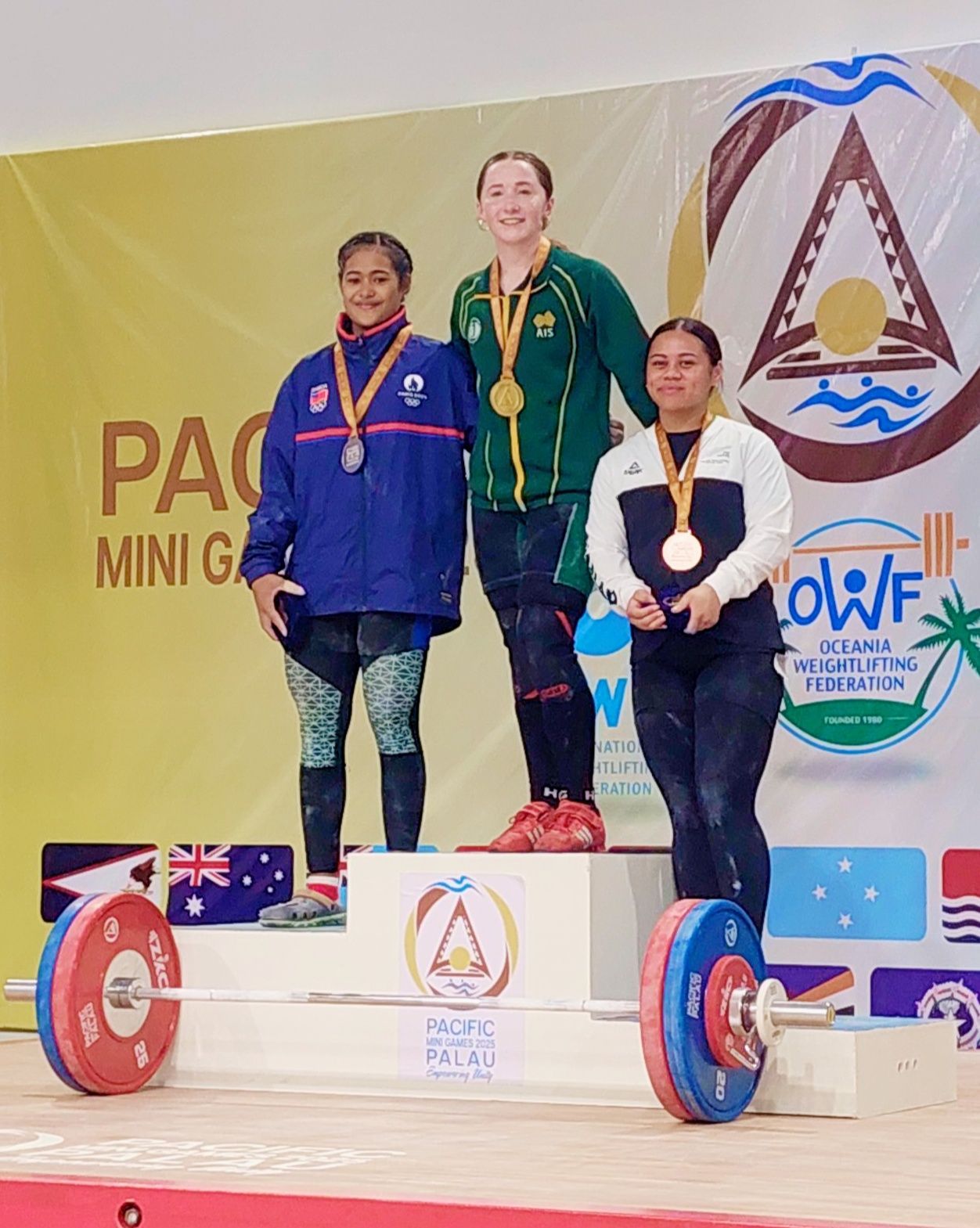
Sefulu Seuao (left) wins a silver and two bronze medals in the Women's 69kg category. Photo/Sāmoa Weightlifting Federation Facebook
Sineva Setareki, Chief Executive of the Oceania Regional Anti-Doping Organisation (ORADO), says their mission extends beyond testing.
ORADO has been conducting outreach programmes throughout the Games, particularly through the Voices of the Athlete initiative, which aims to inform athletes, coaches, doctors, and families alike.
Setareki says athletes may use certain banned substances for medical reasons, provided they have a Therapeutic Use Exemption (TUE).
“We’re not here to catch any drug cheats, we’re just here to advocate,” she says. “We want the athletes’ first experience with anti-doping to be through education rather than testing.
“Our job is to make sure that whatever they are prescribing to the athlete is not on the prohibited list. Tell your doctor you’re an athlete. Double-check everything.
“For example, an athlete with asthma might use an inhaler, which is on the banned list. But if there’s no alternative, and their case is approved, they’re allowed to take it.”
Samples collected during the Games are sent to an anti-doping-accredited laboratory in Sydney. In previous Games, two positive cases arose from over 300 tests, but Setareki says the consequences can be serious.
“Usually, the automatic ban is four years. But it depends, could be one year, two years, four, or even life, depending on the substance.”
ORADO confirms there have been no reports indicating doping violations by any participating countries at this year's Pacific Mini Games.
Setareki says if any cases arise, they would follow a process "which involves notifying the athlete first. The athlete’s Pacific Games Association (country) is then informed, and the athlete has the opportunity to agree with the laboratory findings or to appeal them."
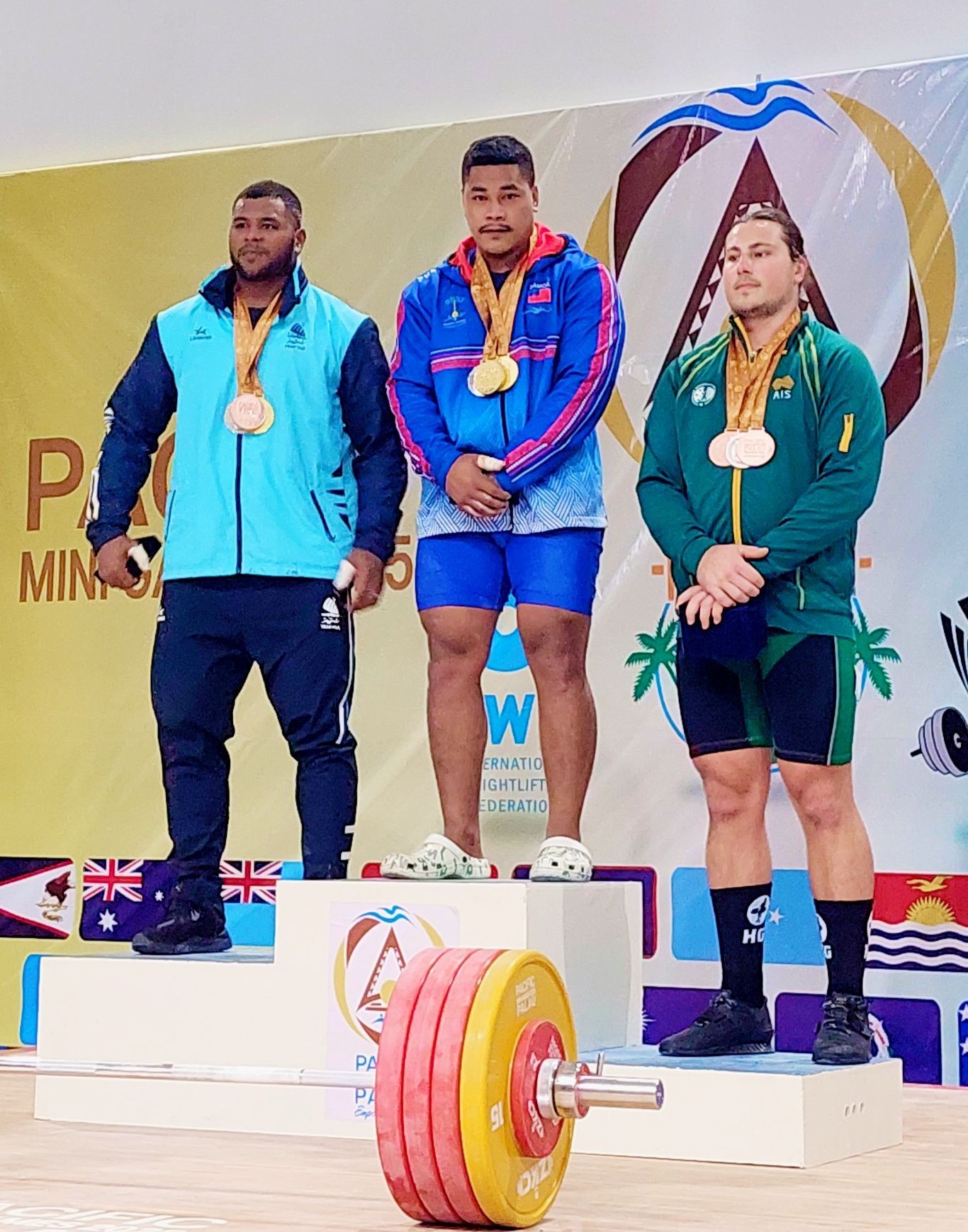
Jack Opeloge (middle) wins two gold and one silver medal in the Men's 110kg. Photo/Sāmoa Weightlifting Federation Facebook
Educating from the ground up
Wallwork says clean performance is a constant priority.
“Everything is monitored by me - from the time they’re selected into the squad to the time they leave the team,” he says.
“It had to be done to protect us because it also protects us from a positive [result], from not understanding a certain medication or taking a cough mixture.”
Many athletes at the Pacific Mini Games are under 18, marking this their first exposure to anti-doping protocols.
Setareki encourages families to become involved in the process early on. “If we can reach parents, aunties, uncles, the whole community, our message goes further. Clean sport is everyone’s responsibility.”
Wallwork stresses the importance of education. “It gives great discipline, focus, and commitment. It builds character. The only sad part of this sport is the drugs.”
Despite challenges, both leaders remain optimistic.
“We follow you wherever you go,” Setareki reassures young athletes. “Olympics, Oceania, wherever, we’ll be there. Not to catch you out, but to support you to compete clean.”
This article has been updated in paragraphs 16 and 17 to confirm no positive doping results at this year's Pacific Mini Games.